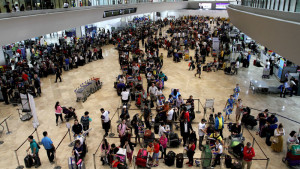The sluggish growth of the global economy is expected to keep crude oil prices stable at their current level this year and weaker next year, according to the latest forecast from the World Bank.
Data from the October issue of the multilateral lender’s Commodity Markets Outlook showed the latest forecasts put Brent crude prices—the global benchmark—at an average of $60 per barrel in 2019, which was lower by $6 than the outlook provided in April.
For 2020, the forecast is $58 per barrel, which is $7 lower than the outlook six months ago.
“In line with the slowdown in global growth, oil consumption is now expected to rise at a much slower pace than earlier forecasts and increase only modestly next year,” the World Bank said.
“A sharper-than-expected economic downturn poses the greatest risk to the oil price forecast,” it added.
The report also noted the negative impact of the attacks against oil production facilities in Saudi Arabia in September was “short-lived by historical standards” because of the swift restoration of production, increasingly diversified sources of oil supplies, including shale oil, and weakening demand.
“However, it was a reminder that the global oil market remains dependent on several critical infrastructure and transport bottlenecks that may be vulnerable to disruption,” the bank said.
Brent crude prices averaged $71.10 per barrel in 2018, up from $54.40 per barrel in 2017. Dubai crude, the benchmark for Asia, averaged $68.2 per barrel in 2018, also up from $53.10 per barrel in 2017.
In the Philippines, pump prices of diesel went up P3.05 per liter, mostly representing the excise and value added tax at P2.80 per liter.
Similarly, pump prices of gasoline went up by P1.77 per liter. Without the additional taxes of P2.97 per liter, gasoline prices would have gone down by P1.20 per liter.
So far this year, diesel prices have gone up by a total of P6.14 per liter, and gasoline by P7.39 per liter. —RONNEL W. DOMINGO


